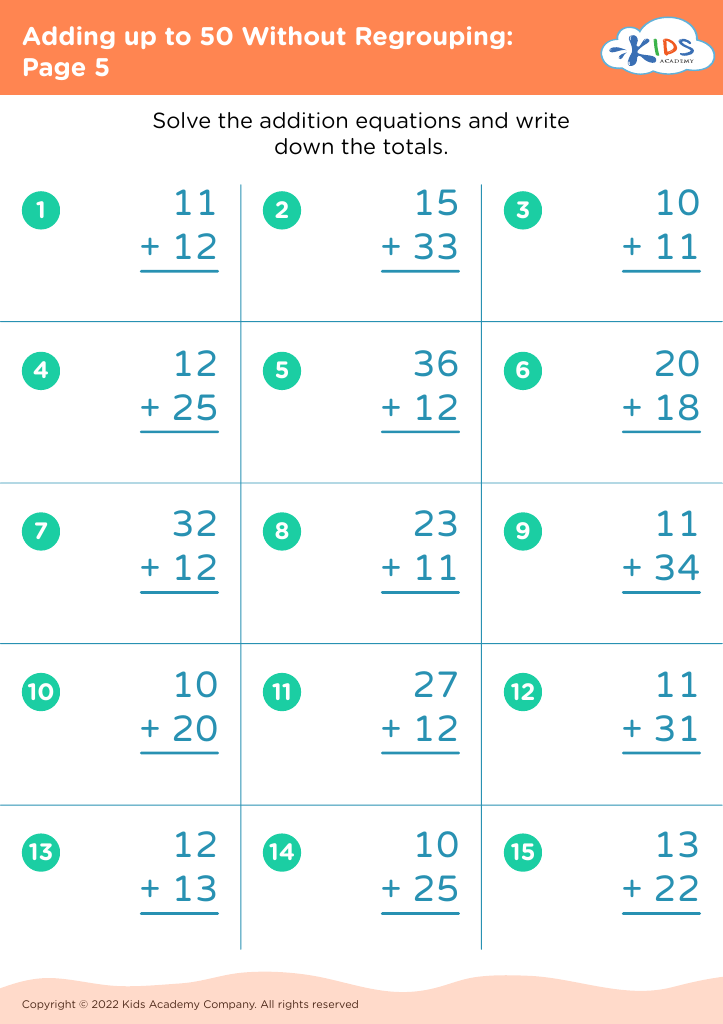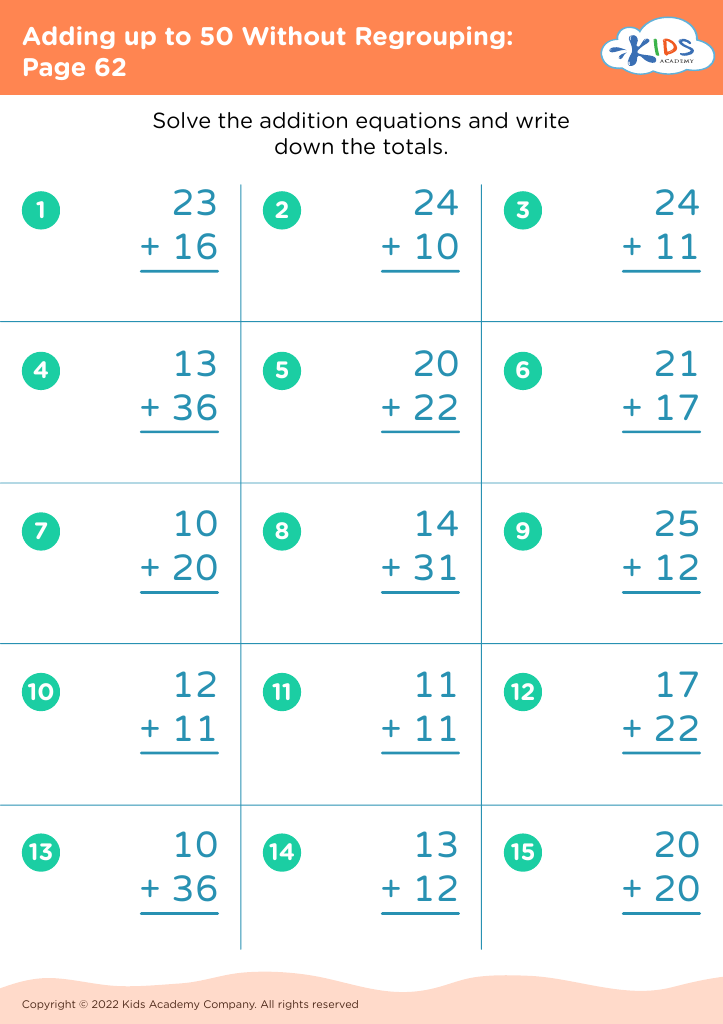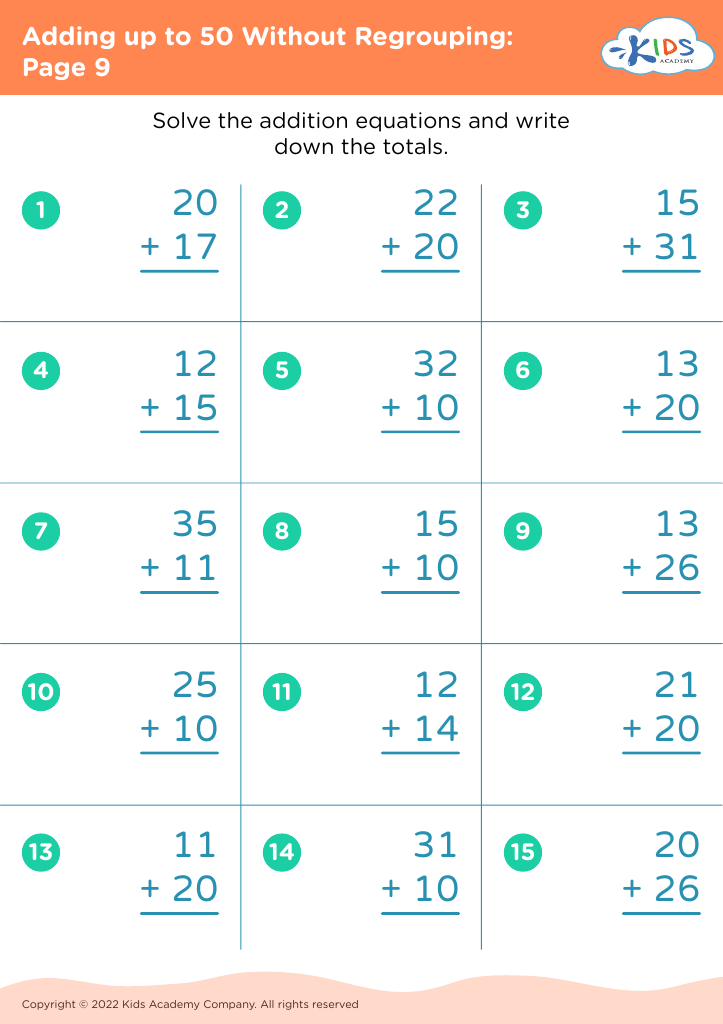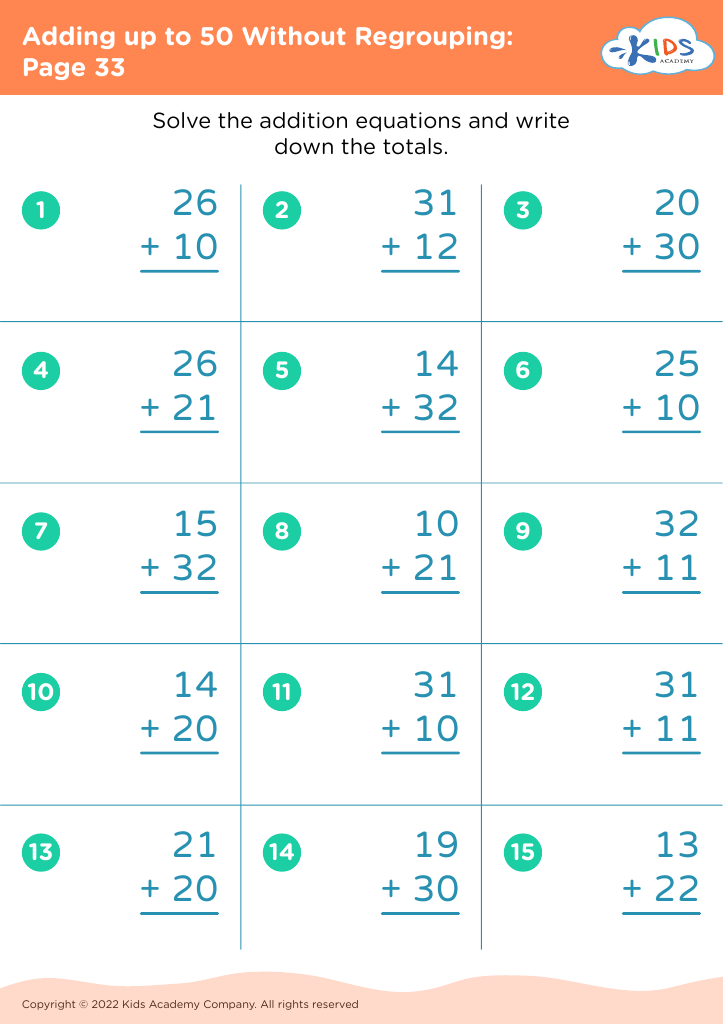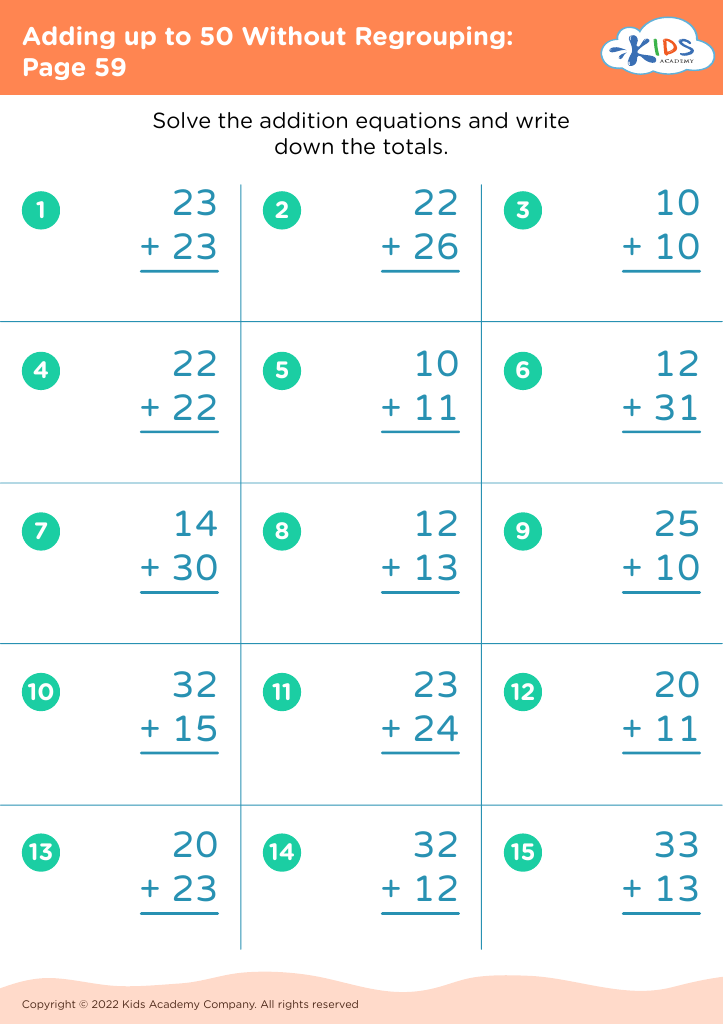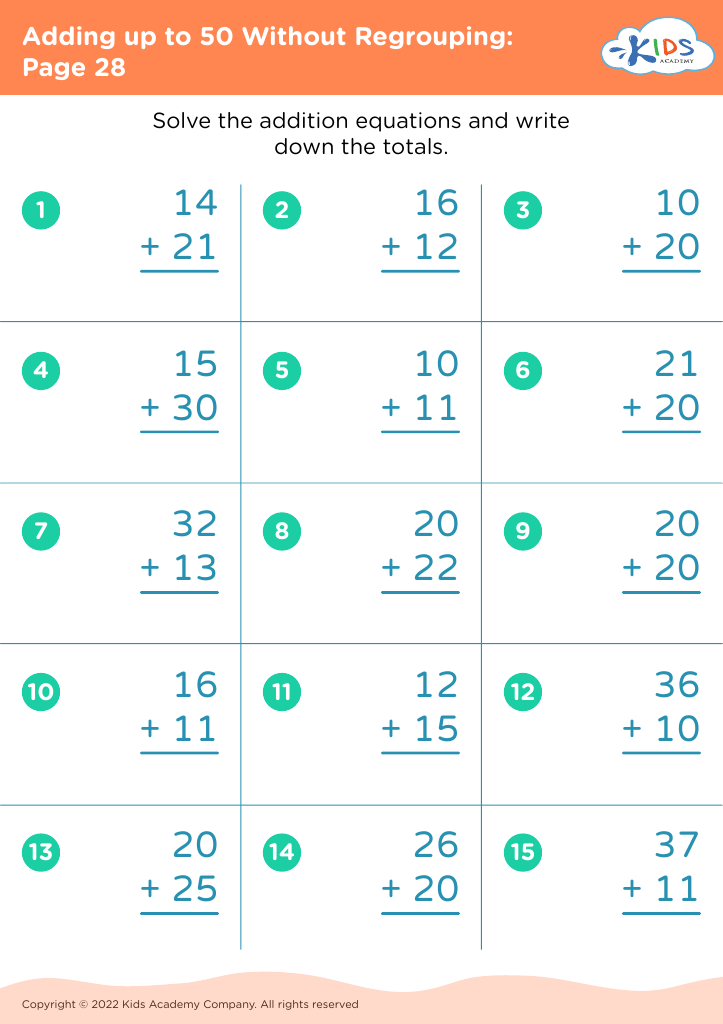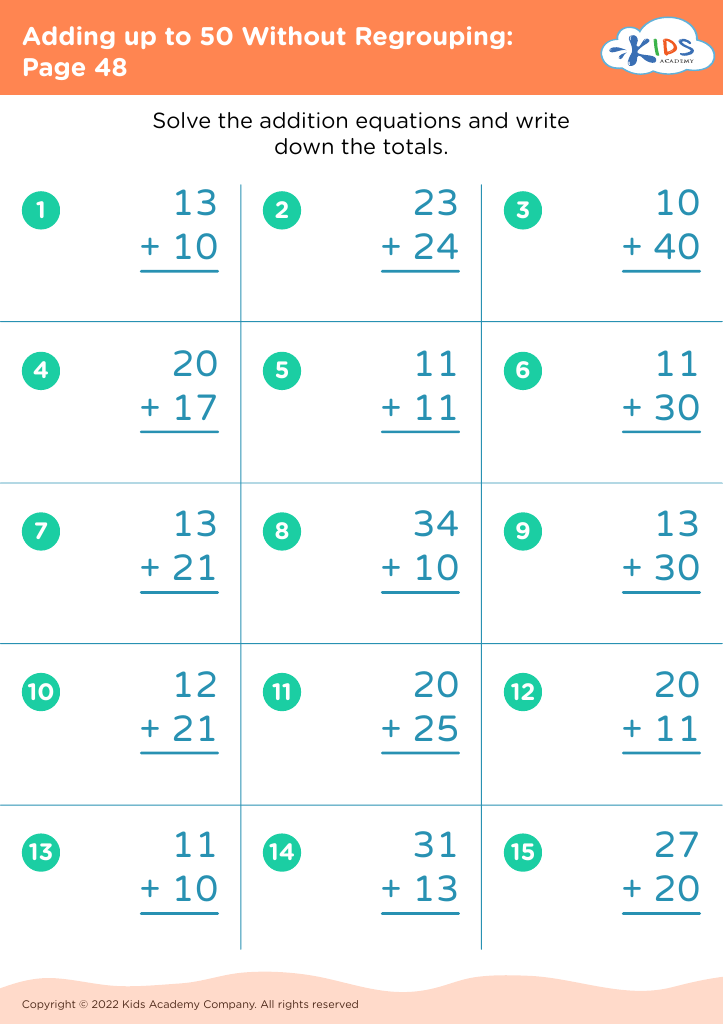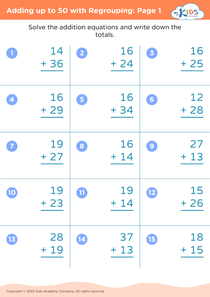Counting skills Adding up to 50 Without Regrouping Worksheets for Ages 5-8
11 filtered results
-
From - To
Enhance your child's counting skills with our "Adding Up to 50 Without Regrouping" worksheets, tailored for ages 5-8! These engaging activities encourage young learners to practice simple addition without the complexity of regrouping. Each worksheet is designed to boost confidence and fluency in basic math concepts, helping kids develop essential skills for future success. With vibrant illustrations and a variety of problems, children will enjoy mastering addition in a fun and interactive way. Perfect for home or classroom use, these worksheets provide a valuable tool for strengthening early math skills. Start counting with ease and watch your child's abilities grow!
Counting skills and the ability to add numbers up to 50 without regrouping are fundamental building blocks for a child's mathematical understanding, particularly for children aged 5-8. Early arithmetic skills serve as the foundation for more complex mathematical concepts encountered later in their education. Mastery of these skills enhances children's number sense, enabling them to recognize patterns, understand quantities, and develop problem-solving abilities.
For parents and teachers, fostering these skills is crucial, as they help children gain confidence in their mathematical abilities. Children who can add numbers without regrouping are better equipped to handle tasks involving grouping or regrouping in the future, such as carrying over in addition or borrowing in subtraction. Additionally, counting and basic addition strengthen fine motor skills through the use of manipulatives, promoting a hands-on approach to learning.
Moreover, a strong grasp of basic arithmetic encourages children to engage with math in everyday life, such as in budgeting, cooking, and planning events. Ultimately, investing time in developing these essential counting and adding skills ensures that children are prepared for future academic success, reinforces their confidence, and fosters a positive attitude toward mathematics as a whole.
